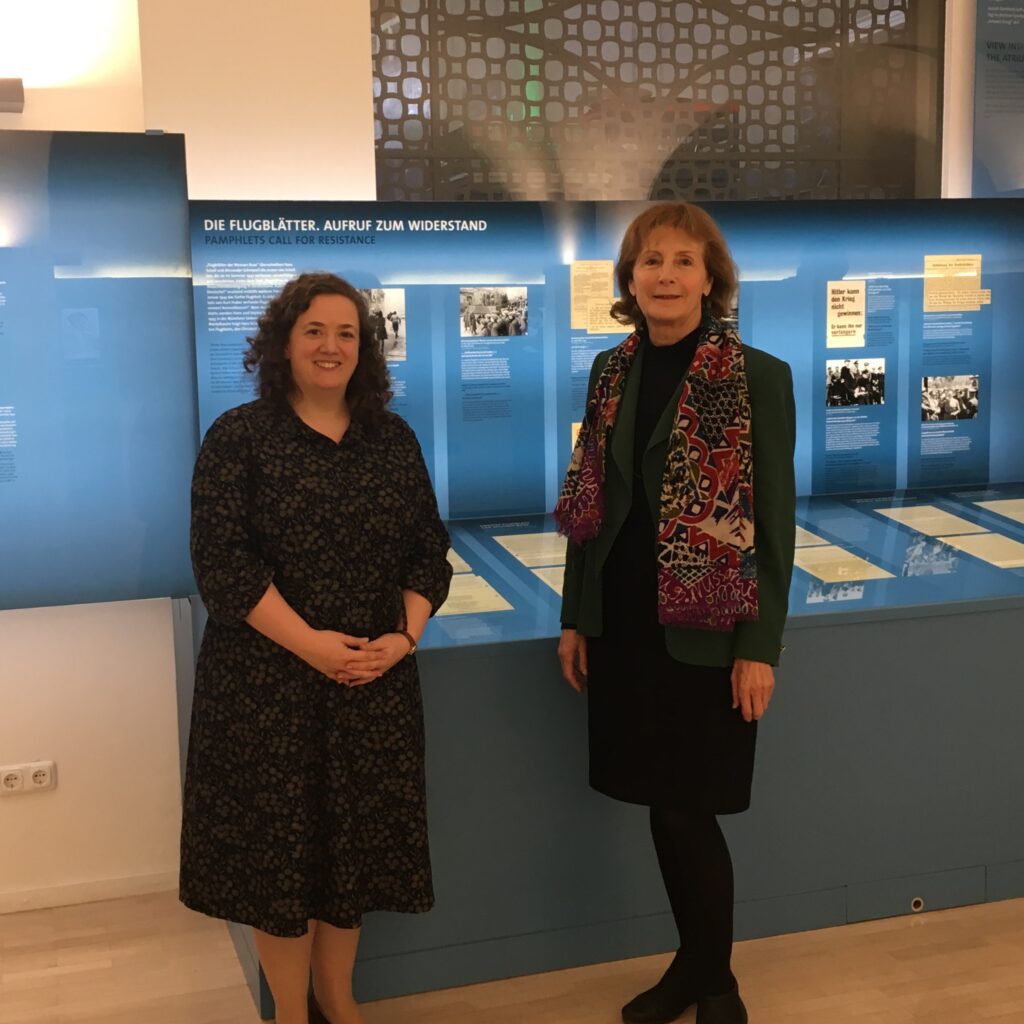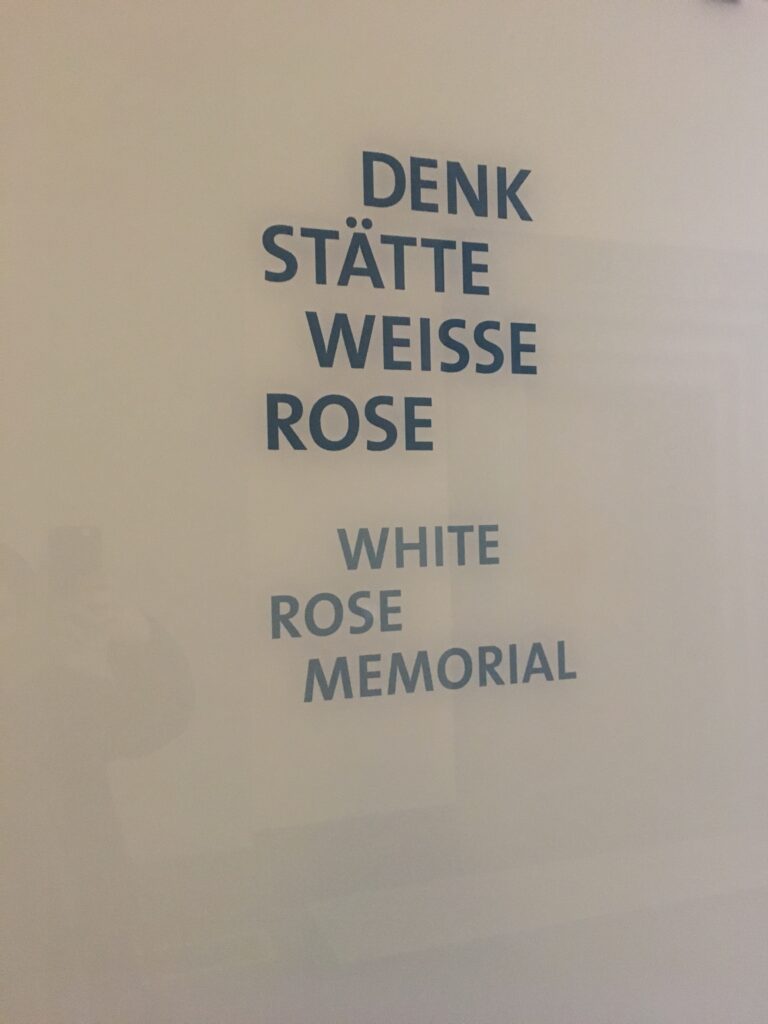Dr Alex Lloyd writes about her visit to the Weiße Rose Stiftung in Munich.
This year I hold a Knowledge Exchange Fellowship at The Oxford Research Centre in the Humanities (TORCH) to support my work as part of the White Rose Project. Knowledge exchange is defined as ‘the mutually beneficial sharing of ideas, data, experience, and expertise, and involves collaboration between researchers and external organisations or the public’. My external partner is the Munich-based Weiße Rose Stiftung (White Rose Foundation), whose mission is to uphold the resistance group’s memory and ‘to contribute to civic courage and individual responsibility and to promote democratic consciousness’. The purpose of my visit was to get a better sense of the Foundation’s work, its approaches to disseminating the history of the White Rose, and to meet individuals connected with the history and memory of the group, including academics and family members.
On 11 November I set off for Munich. I happened to be in the departures hall at Heathrow as the clock struck 11am, marking the annual commemoration of the Armistice with a 2-minute silence. It was moving to hear the usual noise of the airport gradually fall silent as the Last Post was played.
During the course of the week I met Markus Schmorell (nephew of Alexander Schmorell) and Wolfgang Huber (son of Professor Kurt Huber). I also talked with one of the Foundation’s resident historians, and renewed my acquaintance with Dr Hildegard Kronawitter, the Foundation’s principal chairperson. We discussed the day-to-day work that goes on at the Foundation, including with visitors and schools in their permanent display, the DenkStätte Weiße Rose. We also discussed their travelling exhibition and the many exciting possibilities for future projects to be undertaken together. I also sat down with two academics who have worked extensively on the White Rose, particularly fruitful as I plan the next steps of my research.
I was also able to meet up with one of the student translators from last year’s project and discussed current plans. Since the White Rose Project began in October 2018, I have wanted to have students as its heart: not just as translators, but as partners in the work.
I wanted to ask everyone I met what they felt would be important about our telling the White Rose’s story in the UK and in English. Different things came up, but it was striking that, most frequently, emphasis was placed on the fact that the group was just that – a collection of individuals who worked together in different ways.

Dr Hildegard Kronawitter and Dr Alex Lloyd at the White Rose Foundation’s DenkStätte (permanent exhibition) in Munich, November 2019. 
On my last evening in Munich, Dr Kronawitter and I attended a performance in the University, organised by the Munich Volkstheater: Sophie Scholl – Liebe in Zeiten des Widerstandes. The piece takes letters and diaries written by Sophie Scholl and Fritz Hartnagel (who would become her fiancé), and performs them with musical accompaniment. The piece is devised to include cast and audience movement: we began in one of the lecture theatres and ended, hauntingly, in the Lichthof – where Hans and Sophie Scholl put copies of the pamphlets around the balustrade, which led to their arrest on 18 February 1943. The three performers – Henrike Hahn, Rahel Hutter and Jonathan Hutter – were excellent. They received a well-deserved standing ovation along with shouts of ‘Danke!’. It felt slightly odd to end the evening over a glass of Sekt with the cast and crew, but it did make for a celebratory end to a fascinating week. It was extraordinary, moving, to hear extracts from the Flugblätter which last year’s student translators at Oxford worked so hard to translate, especially in that space.



